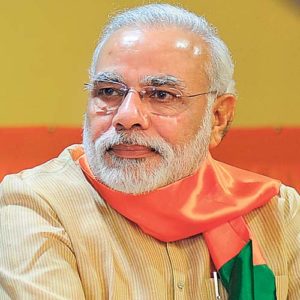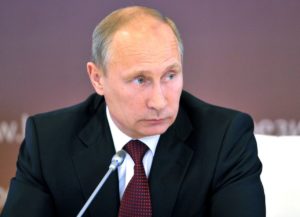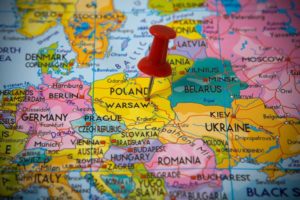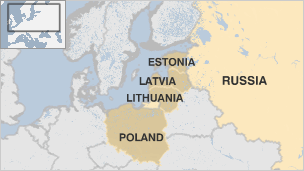In my capacity as a senior member of the Foreign Affairs Committee, I just returned from India, Poland and Lithuania. I was accompanied by Democratic Congressman Lloyd Doggett of Texas and Republican Congressman Luke Messer of Indiana. (I’ve known Congressman Doggett for nearly 20 years as we were both first elected in 1994.)
India is the world’s largest democracy, has four times the population of the United States, and is expected to pass China as the world’s most populous nation in the not too distant future. This is a particularly significant time in U.S. – India relations, as the Indian people just elected a new leader, Prime Minister Narendra Modi.
Modi ran on a platform of economic growth and good governance (India has long been plagued by corruption and stifling bureaucracy), and there seems to be a prevailing confidence that he may be just the right leader there at the right time. He was previously a quite successful chief minister (similar to a governor) of the Indian state of Gujarat. It is hoped that he’ll bring the same skills he displayed in Gujarat to all of India.
Since India is becoming a more and more important trading partner to the United States, his success could be positive for the United States, particularly in the area of economic growth and job creation. India is also seen as an important counterweight to China, the United States’ probable principal rival on the world’s stage over the next century. The U.S. – India relationship is considered to be a “strategic partnership,” but only time will tell whether our relationship with India will be as positive as it should be. It needs to be handled right.
Next, Eastern Europe. I had traveled to Ukraine, with Democratic Congressman Steve Lynch of Massachusetts, back in May, shortly after Russia grabbed Crimea. Putin has since shifted his attention to other eastern portions of Ukraine. Ukraine’s neighbors, particularly Poland and the Baltic countries (Estonia, Latvia, and Lithuania), all of whom had been behind the communist iron curtain until the fall of the former Soviet Union in 1989, feel threatened by Putin’s aggression and refusal to recognize international boundaries. Our European NATO allies’, and the Obama Administration’s response to this aggression, was in my view, and in the view of many foreign policy experts, embarrassingly weak.
While in Ukraine, we met with the Ukrainian Prime Minister. He made it abundantly clear that whereas they appreciated what help the Obama Administration had given them (not much), their survival and that of their neighboring democracies need our, and NATO’s, help.
On our way back from India, Congressmen Messer and Doggett and I spent several days in Poland and Lithuania. We first met with our embassy teams in both Warsaw and Vilnius to get the most up-to-date assessment of the situation on the ground in each country, and then met with representatives of the Polish and Lithuanian governments, including the Deputy Foreign Minister of Poland, and the Foreign Minister of Lithuania, the Prime Minister of Lithuania, and Members of the Lithuanian Parliament.
There is considerable concern in Poland and Lithuania that Putin will continue his dangerous aggression unless he’s convinced that the West will stand up to him. Both Poland and Lithuania would like to have a permanent American military presence in their countries. This is something Congress and the Obama Administration need to have serious discussions about. We should insist that all our NATO allies devote more of their budgets to strengthening their own defenses, so they’re less dependent on the United States for their security.
Also, most European countries are far too dependent on Russian sources of energy, making them subject to economic blackmail. Lithuania, for example, gets 100% of its natural gas from Russia, and 60% of its electricity.
Leaders in both countries said they’d far prefer to buy LNG (liquefied natural gas) from the United States. We have this in abundance and the Obama Administration and Congress should work together to modernize our existing rules and regulations which make exporting this product virtually impossible at the present time. Thousands and thousands of good paying American jobs can be created if we’re smart about this.
On a more somber note, while in Poland, we drove from the capitol, Warsaw, to the Nazi death camp of Treblinka, about 60 miles outside the city. From July 1942 to August 1943, 900,000 lives, mostly Jewish, were exterminated at Treblinka by Hitler and his murderers. And in Vilnius, the capital of Lithuania, we spent about an hour with a 92-year-old survivor, in what was the Jewish ghetto until virtually every Jewish man, woman, and child were exterminated. Her mother, father, sister, and every one of her relatives was killed. She was one of the only occupants of the ghetto who escaped, and joined the partisan underground fighting the Germans until the end of the war. It was incredibly moving to listen to this 92-year-old woman, who witnessed firsthand the most horrific event in mankind’s history.
And finally, in Vilnius we spent about an hour with Democratic Senator Bill Nelson of Florida, who was on a different CODEL (Congressional Delegation.) We principally discussed our impressions from our separate meetings with various government officials, and what the U.S. response should be to Russian aggression. It’s good to see representatives of both political parties able to rationally discuss matters important to our nation.
One interesting fact about Senator Nelson. He was only the second United States Senator to fly on the Space Shuttle (the first was Senator Jake Garn of Utah.) Senator Nelson returned to Earth on the Space Shuttle Columbia, just ten days before the Challenger exploded shortly after takeoff. The Columbia, on which the Senator traveled, was also lost several years later, when it broke apart across the United States, killing all the crew.
I asked him if there was anything that stuck out in his mind about his flight. He said he’ll always remember looking down at the earth, and it was mostly blue, and very beautiful. He went on to say that he could see earth’s continents and oceans and thought about there being no borders visible, and that it seemed a shame so many people down there divide themselves into different groups, and are so often fighting with each other. Interesting thought.







